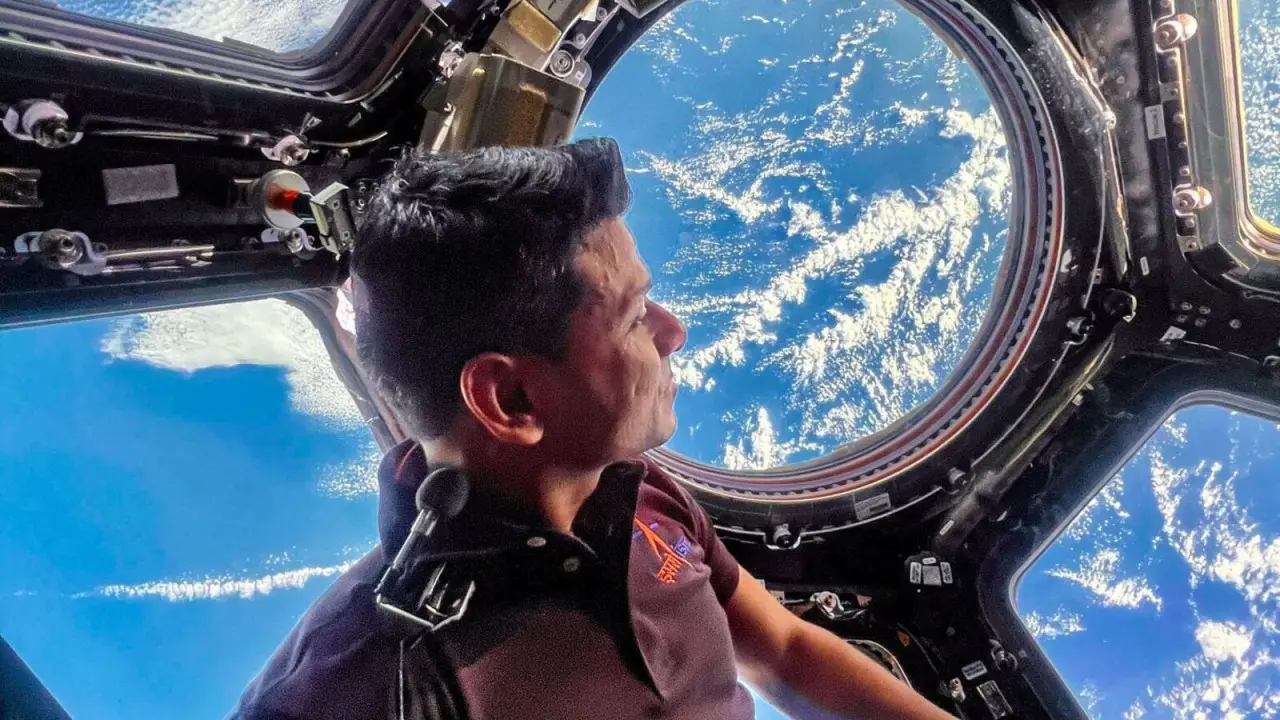
Shubhanshu_Shukla (Social Media)
Technology News: Indian scientist Shubhanshu Shukla has made a remarkable achievement by growing moong and methi (fenugreek) on the International Space Station (ISS). This ground-breaking experiment not only highlights the importance of agriculture in space but also opens new possibilities for sustainable life in space. Let’s explore how this innovative experiment could shape the future of space missions and life beyond Earth.
Farming in space is a challenging task due to the unique conditions aboard space stations. The lack of gravity, different atmospheric pressure, and low humidity levels affect plant growth. Despite these challenges, Shubhanshu Shukla successfully grew moong and methi on the ISS. This experiment could be crucial for future space missions, as it shows that with the right conditions, farming in space is possible and could provide essential nutrition for astronauts during long-duration space missions.
Shubhanshu Shukla is a prominent Indian scientist who has not only pioneered space farming but has also made significant contributions to agricultural science. His research and experiment in space have earned him recognition globally, especially for demonstrating that plant growth can be sustained in microgravity environments. His work is a testament to India's growing expertise in space research and its potential to lead in innovative scientific solutions.
The primary aim of Shubhanshu Shukla’s experiment was to explore the feasibility of growing plants in space. Moong and methi were chosen due to their fast growth cycle and high nutritional value. By growing these plants, Shukla aimed to help astronauts become more self-sufficient in space, where traditional food supplies are limited. This experiment could be the first step toward achieving long-term sustainability in space habitats.
Moong (mung beans) and methi (fenugreek) were selected for this experiment because they are fast-growing plants that require minimal space to grow. Both plants are rich in essential nutrients, making them a good choice for providing astronauts with necessary vitamins and proteins. The fast-growing nature of these crops also makes them ideal for the confined space of a spacecraft or a space station.
Farming in space presents several challenges, from the lack of gravity to the restricted environment of the space station. Temperature regulation, humidity control, and protection from cosmic radiation are some of the factors that make growing plants in space difficult. Shubhanshu Shukla had to overcome these hurdles to successfully grow moong and methi on the ISS. His achievement proves that space farming is feasible, even in the harshest conditions.
This experiment has the potential to revolutionize space exploration in the future. As human missions expand to the Moon, Mars, and beyond, the need for sustainable food sources will become crucial. Space farming could provide astronauts with the resources they need for long-term space travel, reducing dependency on Earth-based supplies. Shubhanshu’s work paves the way for more research into creating self-sustaining ecosystems in space.
Shubhanshu Shukla’s groundbreaking experiment has further strengthened India’s position in the global space research arena. With the growing number of innovations coming from India’s space sector, the country is fast becoming a leader in space technology. This achievement highlights India’s ability to contribute to the advancement of space exploration and the development of technologies that could support life beyond Earth.
Shubhanshu Shukla’s successful space farming experiment on the ISS is a major milestone in the field of space agriculture. His work not only proves that farming in space is possible but also opens up new opportunities for sustainable living in space. This could be a game-changer for future space missions, where self-sufficiency in food production is crucial. Shubhanshu’s contribution is a remarkable step toward making long-duration space travel a reality.





Copyright © 2026 Top Indian News
